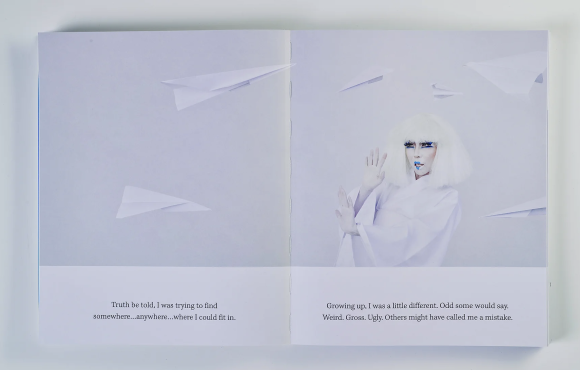
Yoyo surrounded by paper airplanes in “The Ookleberry Tree” (Courtesy of Judy Choi)
A young girl named Yoyo runs away to the empty world of Ooklesville, hoping to find a place where she belongs. There, she meets a friend named Ookles, a miniature version of herself. They soon encounter Mew Mew Moo, the talking cow, and set off on an adventure in search of the Ookleberry tree, which grants wishes with its magical fruit.
This is the tale of “The Ookleberry Tree,” the latest children’s art book created by Judy Choi, a University of Colorado Boulder alum, in collaboration with photographer Francis George and designer Mami Awamura. Through this fairy tale story of friendship, acceptance and hope, Choi hopes to raise awareness of anti-Asian bullying and harassment and to encourage people to speak out against injustice.
“I wanted to create a world where everyone feels like they belong and that they have the right to dream, whatever that dream is, and for it to come true,” Choi said.
“This story is dedicated to those who’ve ever had someone throw a rock in their way,” she writes in the book’s dedication. “Use that rock as a step to stand up for yourself and become a bigger person, so that you may stand up for others and teach them to stand for themselves.”
The inspiration for “The Ookleberry Tree” comes from Choi’s personal experiences with anti-Asian racism in the workplace as an adult.
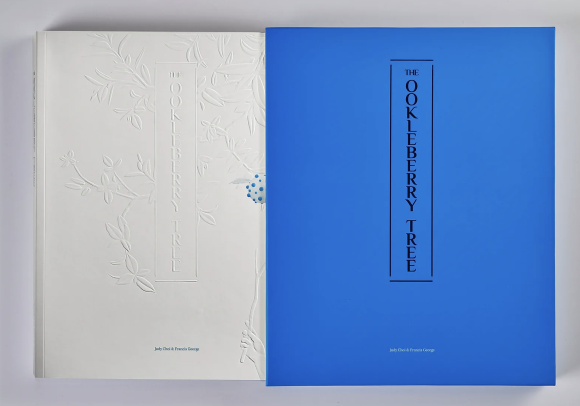
“The Ookleberry Tree” (Courtesy of Judy Choi)
A few years ago, Choi said she experienced anti-Asian bullying from her supervisor. At the time, she said she felt helpless and disempowered, especially when several of her co-workers witnessed the incidents and didn’t take action.
“As an adult, many people still experience bullying,” Choi said. “It’s not just [an issue] for kids. I want people to be aware that if bullying is happening, they need to stand up for others.”
As a Chinese-American woman, Choi said she has often struggled to stand up for herself; however, through her writing and poetry, she has found an outlet to express herself authentically.
Her previous award-winning poetry and art books, “The Cloud that Fell from the Sky” and “When Tomorrow Hesitates,” explore the conflict between traditional Chinese values of filial piety, conformity and “saving face” with her own desires for personal freedom, honesty and self-expression. These books, written collaboration with her niece Phoenix Brown, feature innovative design work by Awamura and stunning close-up photographs of flowers and plants by George.
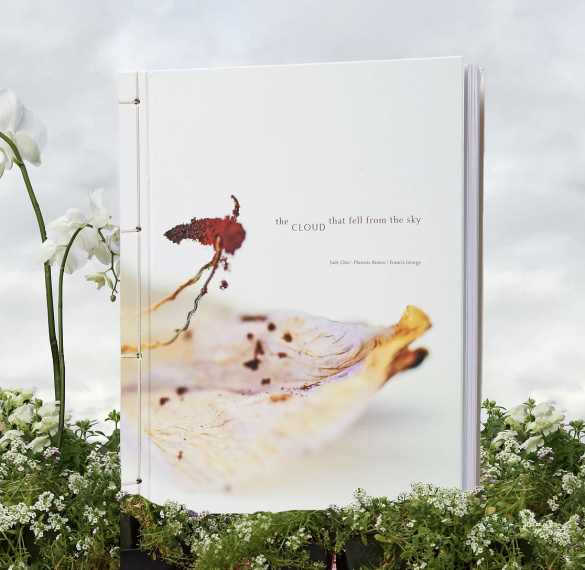
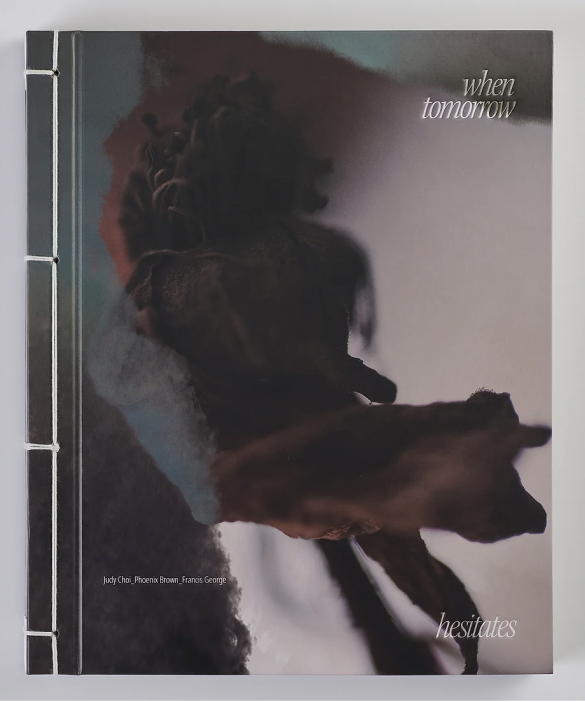
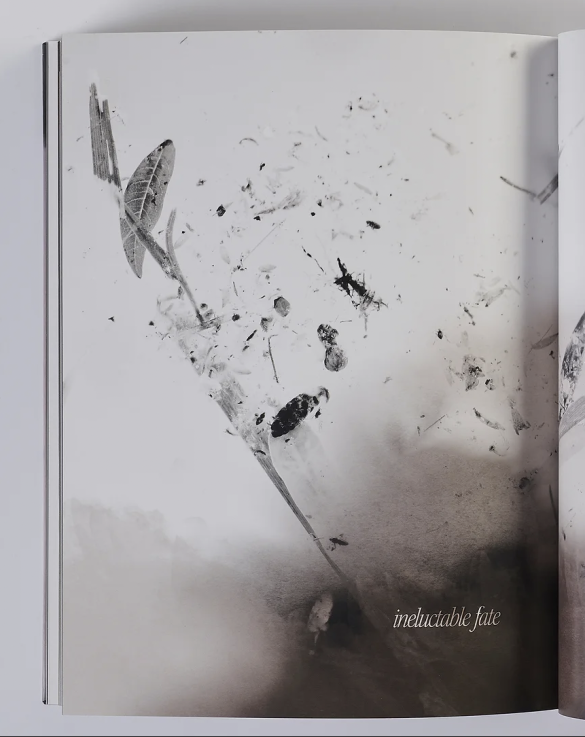
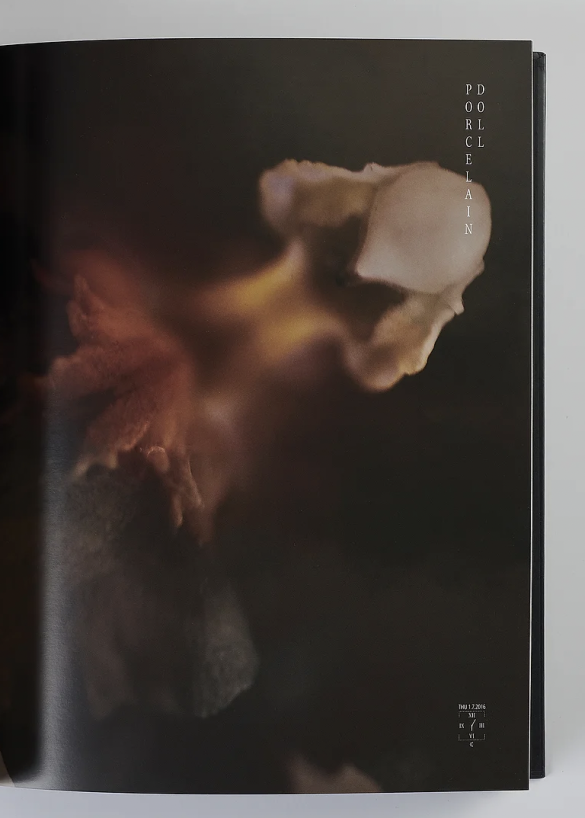
For her third release, “The Ookleberry Tree,” Choi has taken a different approach to representing her Chinese heritage and culture. Instead of visual poetry, this book is written in prose with simpler, playful language and aims to appeal to younger audiences.
For the visuals, Choi worked with George to produce whimsical photo art, which is reminiscent of children’s book illustrations. She compares the aesthetic to the dreamy watercolor artwork in Antoine de Saint-Exupéry’s “The Little Prince.”
Using elaborate costumes, makeup and sets, George animated the storyline through a series of dynamic photos. He decided to use a limited color palette, consisting of white, black, blue and gold, to create an otherworldly atmosphere.
“Francis wanted to create a world where there are no boundaries like race or social status, just like how our imagination has no [limits],” Choi said.
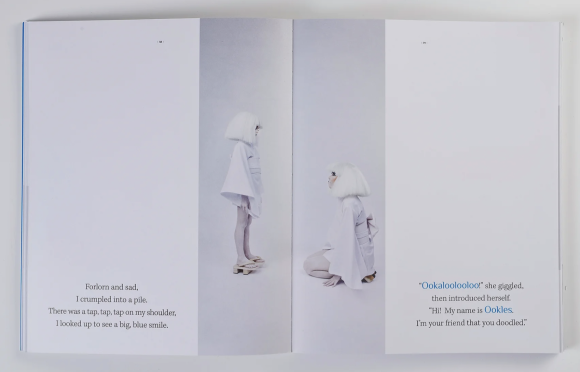
Yoyo meets Ookles in “The Ookleberry Tree” (Courtesy of Judy Choi)
Yoyo, portrayed by Choi, wears a short, modern hanfu dress with a snowy white wig and wooden clogs. Her face is covered with white makeup that brings out her sapphire eyeshadow and lipstick. This look blends traditional Chinese opera face painting with modern glam makeup. Her small friend Ookles, portrayed by the daughter of Choi’s friend, is the spitting image of Yoyo in a younger form.
Their sidekick Moo Moo Mew is a massive, life-size cow statue with shiny gold paint on its nose, horns and tail. Towering high above the trio, the massive ookleberry tree, adorned with leaves and large ookleberries with azure spots, extends into the sky.
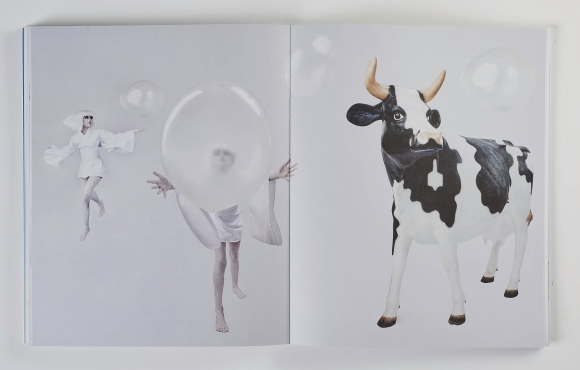
Yoyo and Ookles in “The Ookleberry Tree” (Courtesy of Judy Choi)
As the two girls bite into the juicy ookleberries, the magical tree makes their wishes come true. They ask for all sorts of treats — salt lick candy, ooklenoodles, edamame, spaghetti, hamburgers and more — which appear out of thin air for their feast. Thanks to the power of the ookleberry tree, the girls begin to believe in their biggest dreams, especially Yoyo’s wish to find a place where she belongs.
“More ookleberries and dreams to keep sharing
For what is in a dream but everything…
and anything can be something and turn into everything.
All you have to do is keep on dreaming!” Yo-yo says.
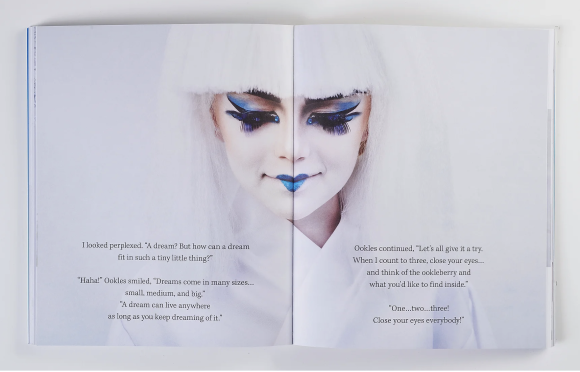
A close-up photo of Ookles in “The Ookleberry Tree” (Courtesy of Judy Choi)
“The universal message is to accept everybody, no matter how different you are,” Choi said. “We all need to embrace our differences and to accept ourselves, to be our own best friend.”
Find out more information about “The Ookleberry Tree” and other TigreFou releases here.
Contact CU Independent Managing Editor Izzy Fincher at isabella.fincher@colorado.edu.
